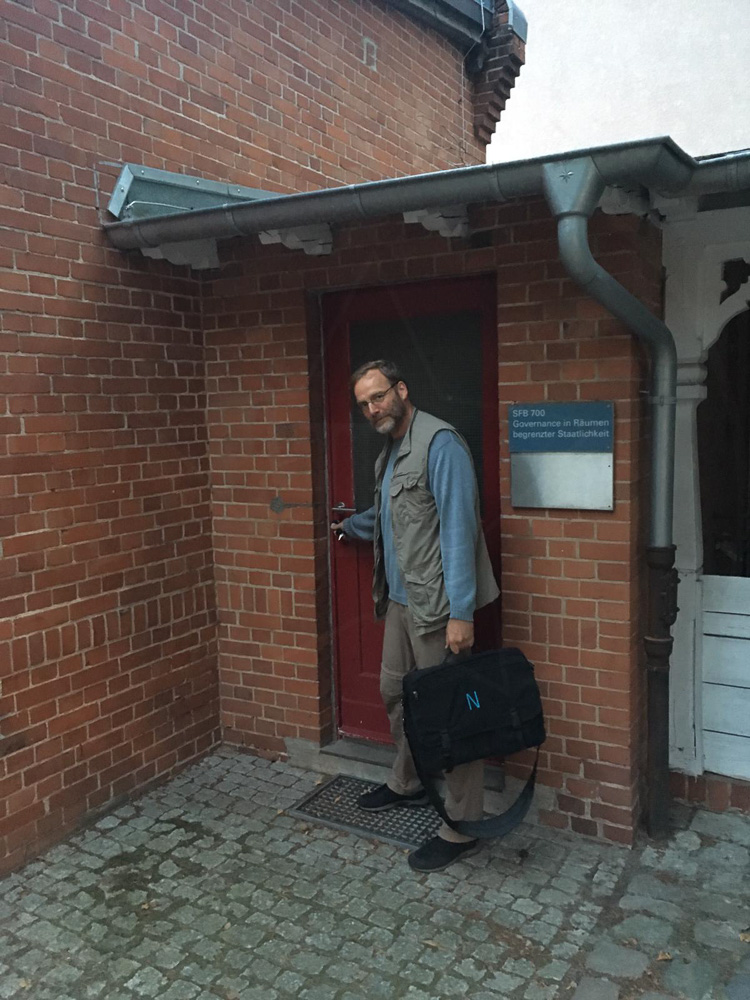After designing, acquiring and implementing (with changing partners) three VW-Foundation financed projects and a further three DFG-financed projects I closed the door of our last FU office – the Gardenhouse – for the last time on the 15th of August 2019. Sixteen years of work for the Freie Universität Berlin came to a quiet end. When I finally locked the door three “men” took the last stance: Tamila Gvadzhava, who had helped me finalising the ICCS project here in Berlin (it will live on at the partner universities in the North- and South Caucasus! New projects based on ICCS and longitudinal impact research are also in the pipeline on our side, with a new academic affiliation), Anastasia Koehler, who had assisted our projects from time to time in Berlin, the Caucasus, Peru and Mexico, and myself. On the light side, however, and owing to the somewhat fleeting institutional interest in our work, we did enjoy degrees of academic freedom in organising and implementing the research we could only have dreamed of under more engaged conditions; hence, I have nothing to complain about here and am quite grateful to FU for providing, if unwittingly, the niches and shadows that enabled our work to flourish. There is a crack in everything – that is how the light gets in (Leonard Cohen, of course).
The six projects were:
- 2003 to 2007: “Accounting for State-Building, Stability and Violent Conflict” (CSCCA), VW Foundation, budget 642.100 Euro;
- 2010 to 2013: “Lokale Konflikte verstehen, Entwicklungschancen nutzen” (Conflict and Development), VW Foundation, budget 366.100 Euro;
- 2015 to 2019: “Institution Centred Conflict Studies” (ICCS), VW Foundation, budget 445.100 Euro;
- 2006-2009: C1 SFB700 Phase I “Transnationale Kooperationspartnerschaften und die Gewährung von Sicherheit in Räumen begrenzter Staatlichkeit”, DFG, budget 496.844 Euro;
- 2010 to 2013: C9 SFB700 Phase II “Aid, Minds, Hearts: A Longitudinal Study of Governance Interventions in Afghanistan”, DFG, budget 502.200 Euro;
- 2014 to 2017: C9 SFB700 Phase III “Aid, Minds, Hearts: A Longitudinal Study of Governance Interventions in Afghanistan“, DFG, budget 521.400 Euro
In total, 2.973.744 Euro have been processed, under the patronage of a succession of university professors, some more, some less involved in the actual research. Christoph Zürcher and me started the whole process inspired by the late social anthropologist Georg Elwert and historian Holm Sundhaussen. Christoph soon achieved tenure track himself and led, together with Ulrich Schneckener, the first SFB700 project until his transfer to the University of Ottawa in 2009. In 2010 Michael Daxner formally took over and accompanied the projects until his retirement in 2017. I finished the last project under the disengaged patronage of Thomas Risse.
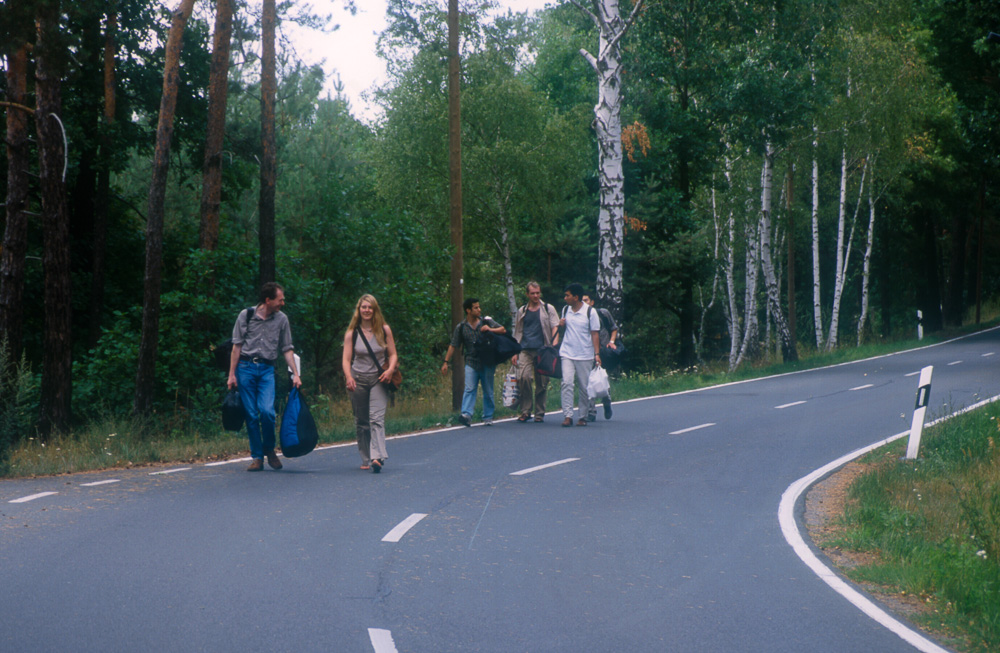
On the way to our first CSCCA training workshop in Brandenburg, summer 2003
The first project, CSCCA, focused on Central Asia, the Caucasus and, later into the project, also Afghanistan. Much of the mixed method iterative inductive/deductive approaches we already developed here. Three senior post-doc researchers (Alexey Gunya, Bahodir Sidikov, and Jonathan Wheatley) build their further careers as academics and regional experts on this research. Three PhD students finalised their dissertation based on their CSCCA fieldwork (Scott Radnitz, Gunda Wieckmann, myself). Scott achieved a tenure position at University of Washington in Seattle. Gunda and our fourth PhD student, Manija Gardizi, pursued successful careers in development policy (BMZ) and implementation (GIZ), also based on contacts and expertise developed curing CSCCA. Azamat Temirkoulov progressed his career as regional expert and consultant on Central Asia.
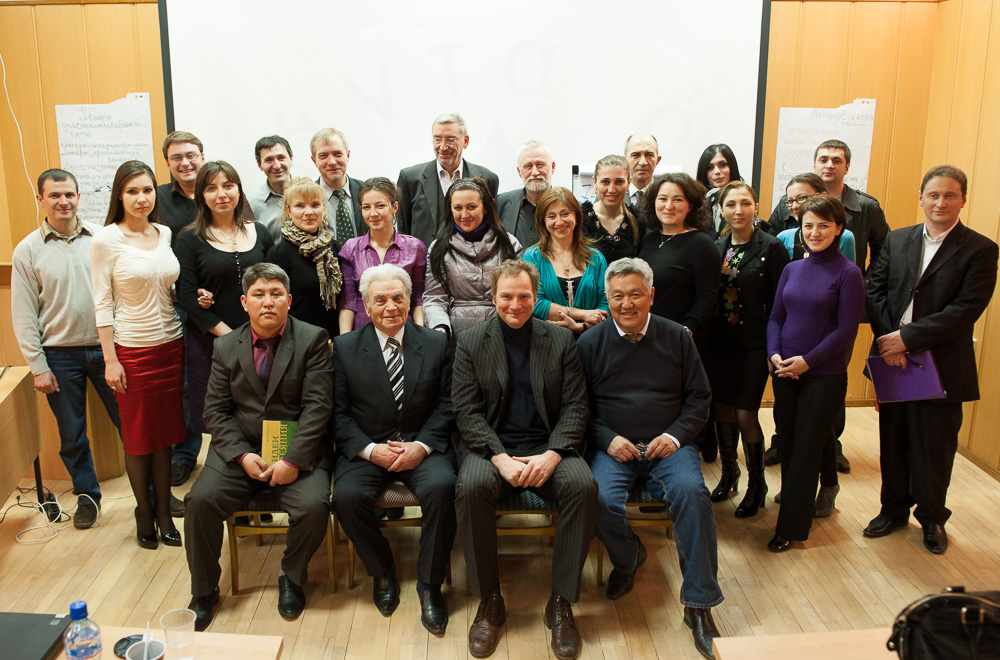
Our opening conference (Conflict and Development) in Nalchik, early 2011
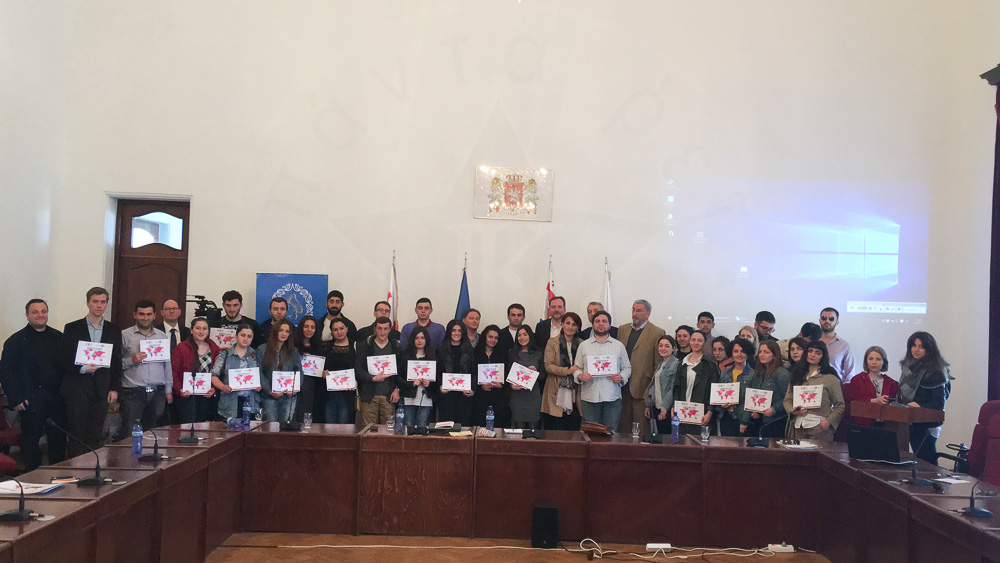
One of the ICCS closing conferences, here Batumi April 2017
The second and third VW-Foundation financed projects (Conflict & Development; ICCS) were connected: Conflict and Development was a transfer project where we decided to play back what we learned in CSCCA to some of the universities in the Caucasus and Central Asia. We initially cooperated with the state universities in Nalchik, Kabardino-Balkaria and Osh, Kyrgyzstan, and implanted research- and teaching modules into existing faculties (social and political science, history, law and religious studies) and courses. The team in Nalchik transformed the modules into a proper master programme and associated Graduate School for Conflict Studies. Following from this impressive result the VW-Foundation encouraged us to apply for a follow-up project intending to expand the school and master programme to other interested universities in the Caucasus region. We did so successfully and cooperated with universities in Maikop, Sukhum/i and Batumi. Marburg’s Center for Conflict Studies and Bielefeld’s IKG supported the research (Marburg also opened their international master programme to the most successful ICCS students). These two projects produced a number of textbooks, and research articles in local and international academic publications, most of which are accessible (and widely used) at open platforms (academia and researchgate).
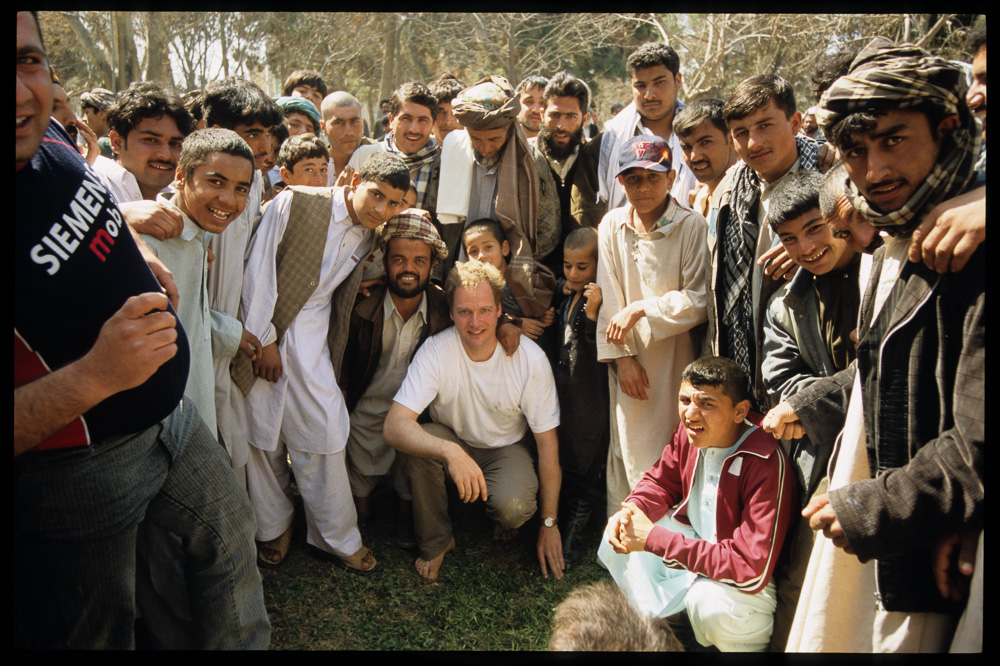
Fieldwork in 2007, after participating in a little village wrestling competition in Balkh town
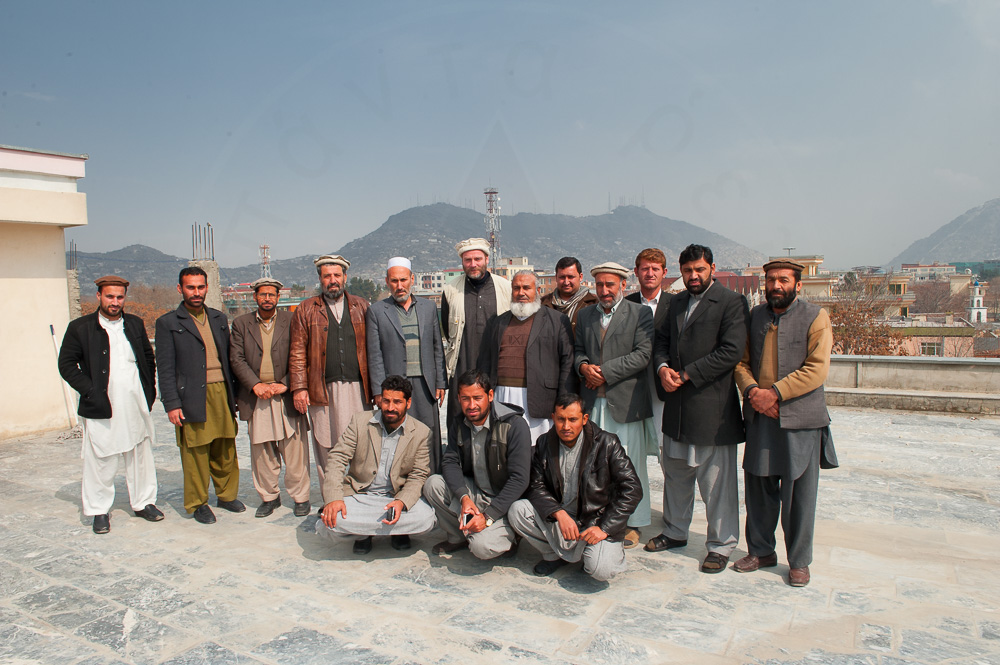
OSDR research team during training in Kabul, 2015
The twelve years of DFG-financed projects in the framework of SFB 700 very much focused on the development and implementation of a mixed-method assessment of the local impacts of the international intervention and state-building attempt in Afghanistan. These projects produced a wide range of academic publications, as well as policy analysis and recommendations. On three occasions I reported to standing committees of the Bundestag as an expert for Afghanistan. Over the course of the SFB we trained local teams in fieldwork and analytical research methods (OSDR, AHRRAO) and some of them were recently invited to join the preliminary peace negotiations between the Afghan Government and Taliban as representatives of Afghan Civil Society.
Team members provided academic research expertise to local and international NGOs working in Afghanistan (e.g. AKF(A), ACTED, Hand in Hand, Max Planck Foundation for International Peace and the Rule of Law), the Afghan Government (e. g. I-ANDS, ICOIC) as well as national and international development bodies (e.g. Foreign Office, BMZ, DfID, GiZ).


